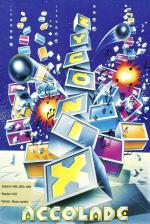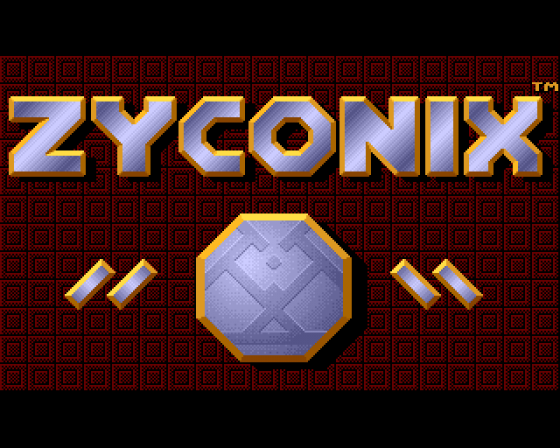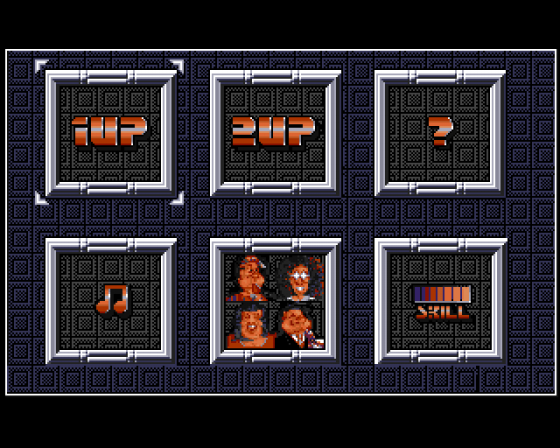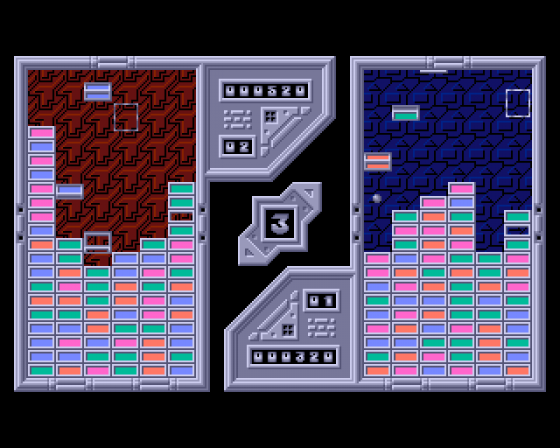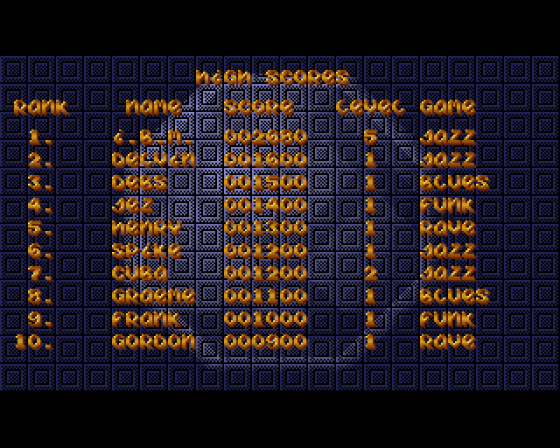
The One
 1st November 1992
1st November 1992
Klax meets Arkanoid meets Tetris, that's the best way to describe Zyconix. But is it more than the sum of its parts or less? David Upchurch reports.
Zyconix (Accolade)
Zyconix looks - and plays - very much like a two-dimensional version of Klax. And, considering that Klax's three-dimensional aspect was completely false and superfluous anyway, you'll appreciate that the two games are very similar indeed. The scenario is this; randomly-selected coloured blocks tumble down from the top of the screen and collect at the bottom. The player can grab them with a cursor as they fall and move them around the screen, with the aim of positioning them so that when the blocks finally come to rest they form lines either horizontally or diagonally - vertical stacks would be too easy - which then disappear. If the blocks build up to the top of the screen then the game ends.
From time to time special icons drift down which, when grabbed, have typically beneficial but occasionally detrimental effects on the player's game. The longer the player survives, the harder it gets, with the blocks falling ever faster. Before the game starts the player can make things tougher for himself by increasing the rate at which blocks fall and altering the minimum number of blocks needed in a line before it'll disappear.
And that's all there is to say, really. Like most arcade puzzle games Zyconix is a very simple concept. But does it have that elusive addictive quality that Tetris had or is it just an also ran?
The Verdict

Zyconix is nice - but it's not going to set the world on fire. It's well presented, with colourful but not distracting graphics and some superb tunes (although these do get a little wearing after a while so be thankful for the option to turn them off). On its lower skill levels, where you can get quite a pleasant and absorbing little line-creating rhythm going, it proves more relaxing than taxing to play.
It's a lot more forgiving than its close-cousin Klax ever was, mainly thanks to the frequent power-ups that seem to appear just when you need them to help you out of the tight spots. Peculiarly, however, Zyconix's virtues are also its sins. Its 'easier' nature means that it rarely generates any real sense of excitement and the power-ups introduce too much randomness into a game where surely success should rely more on skill than chance. It might have been nice to have an option to turn the power-ups off.
The end result of all this is that the satisfaction you get from creating a line is minimal, certainly when compared to a game like Tetris, mainly because you often don't feel all as much in control of what's going on as you should do. This criticism makes it sound like I didn't enjoy the game which really isn't true - I found it a lot of fun to play.
The only problem is that, despite the four game variations and the multiple skill levels, I can't see it dragging me back for one more go in a year's time like a classic arcade puzzler should.
Scores
Amiga 500 Version| Graphics | 62% |
| Sound | 82% |
| Playability | 80% |
| Lastability | 73% |
| Overall | 77% |

